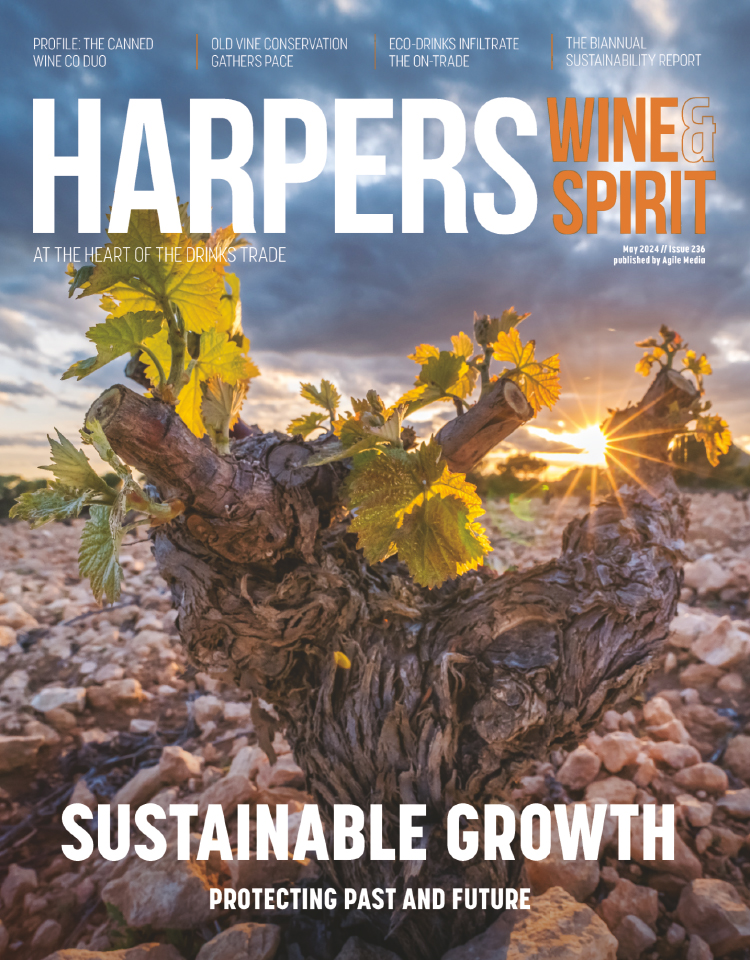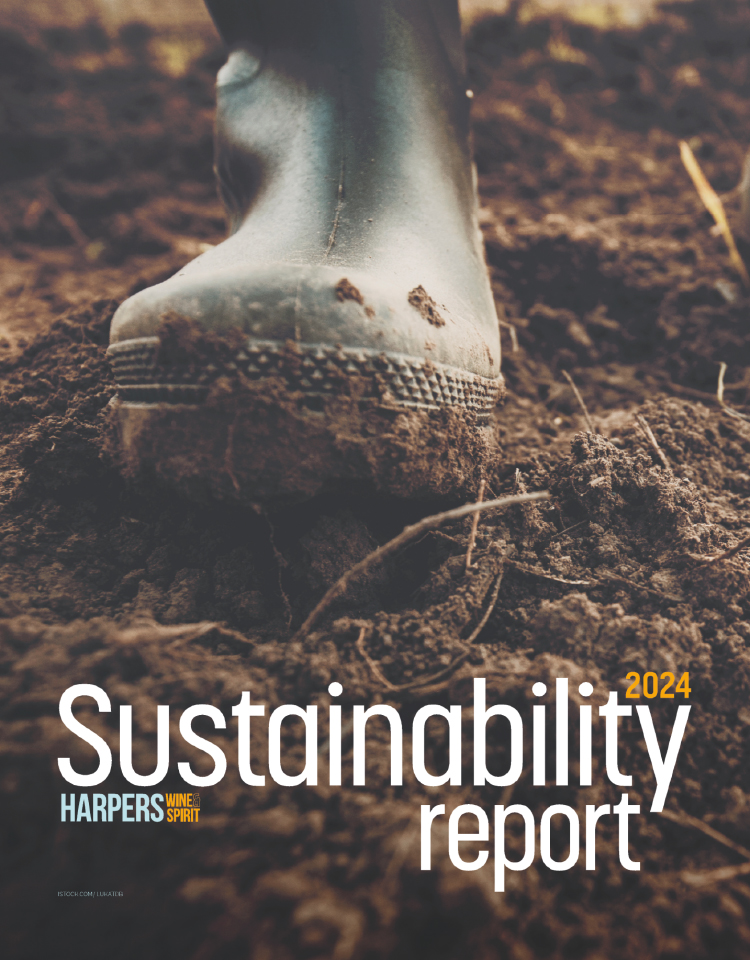THE STATE OF THE FOURTH ESTATE
Wine writers spend much of the time lobbing verbal hand grenades and garlands from the safety of their PCs. Are they making and breaking the reputations of wines, or is their scribbling merely a self-indulgent irrelevance? Andrew Jefford invites the opinions of key trade figures and journalists
Wine is a complicated, culturally resonant product costing between 2 and 200 per bottle; it cannot, in most cases, be sampled before purchase. This is why wine writers exist. In Britain, they are numerous: the Circle of Wine Writers has an astonishing 230 members, and there are more who don't belong. What is their role? Do they do a good job? Could they do a better job? In order to find answers to these questions, I contacted a wide spread of importers, retailers and wine writers with e-mail questionnaires; what follows is based on the 42 responses I received. Some of the questions were asked universally; others were specific to the trade or the press. All of those replying were offered the option to comment off the record if they wished, in order to solicit truthful feelings, independent of the commercial perspectives imposed by the facts of their employment. In the event, well over 90% of the replies were on the record. This article summarises those replies, though inevitably and regrettably, many perspectives have had to be excluded. The one topic on which there was universal agreement was that of the role of the wine press. Most replies yoked two duties: education and entertainment. David Gleave MW of Liberty Wines put it most succinctly for the trade, To educate, explain and entertain', as did Joanna Simon for the press, Inform, enthuse, inspire, entertain'. There were nuances: Jasper Morris MW of Morris & Verdin, for example, distinguished between wine writing - to be a source of information, explanation, inspiration' - and wine journalism - to advise people what to buy; to comment on topical events'. Interestingly, it was the trade rather than the journalists themselves who stressed the importance of honest, balanced criticism. The press,' said Mike Paul of Western Wines, should put pressure on the trade by acting as policemen, or as guardians of the consumer.' No less surprisingly, the trade also stressed the importance of journalists navigating themselves off the beaten track - to reveal and explain the unknown, misunderstood and poorly represented', in the words of Dan Jago of Bibendum - and of being genuinely inspiring: To express the joy of wine,' said Dylan Paris of Bordeaux Index, by conveying an accurate background, current topical analysis and, most importantly, to stimulate the senses through honest critical appraisal of the wines themselves.' Dee Blackstock MW of Waitrose probably wrote the job description most journalists would prefer: to set the reader alight with a passion for wine which will drive them to explore both what is in the bottle, as well as visit the regions and try the whole experience of food, wine, scenery and culture for themselves.' Only one respondent, Allan Cheesman of Sainsbury's, actually included to promote the sales of wine' as part of the stated aim of wine journalism. The aims, then, are a matter of broad agreement; not so the level of achievement, a question addressed chiefly to the trade. I divided performance assessment into three areas: tasting ability, writing ability and intelligence (or otherwise) of press accounts of the wine world. Roy Richards of Richards Walford, at one extreme, felt that members of the press tasted as well as any random sample of the population'; Blackstock said, more charitably, that they were as good and as bad as most wine buyers and Masters of Wine'; and Stephen Browett of Farr Vintners claimed that many don't have the experience, knowledge and maybe not the ability' to be good tasters. A frequently expressed criticism was that many writers (in the words of Laura Taylor of Corney & Barrow) allow personal prejudices to cloud their judgement', and Morris also spoke for many when he said he thought that the UK press consisted mostly' of good tasters, but expressed his concern at some alarming exceptions'. Some are superlative in their tasting,' agreed Cheesman, though he had little respect' for the tasting notes and opinions' of others. Angela Mount of Somerfield - who is amused' by the regularity with which a particular wine might be pilloried by one writer while another makes it his or her star buy' for the week - felt that there needed to be more judicious subjectivity' and care' taken in reaching conclusions, an opinion shared by many. Assessments of the writing ability and general intelligence of the approach of journalists were broadly in line with this. Some,' said Cheesman, show a real grasp of issues and fight to promote quality wines and the industry. Others show prejudice, with little foundation of knowledge, or take irrational stances on issues/subjects that demonstrate a lack of understanding of the trade or, importantly, the wine-drinking consumer they are supposed to be catering for.' Gareth Roberts of Asda went further, suggesting that, very few journalists reflect the true values of the everyday wine consumer', and that most columns were over-complex for the readership'. Chris Davey of OW Loeb pointed out that journalists were selling words' and not bottles: The problem with selling words is that there is a constant need to say something dramatic and to find a story where quite often there isn't one.'
A waste of ink? Many, though not all, of those surveyed confirmed that the power of the press' to sell recommended wines has diminished over the last decade and that, as a sales tool, journalists' recommendations are far less useful than promotions. An interesting example,' revealed Cheesman, was our Easter 2002 Champagne offer, which received a poor press on Good Friday. We received only two consumer complaints across the whole country and sold one million bottles during the following week.' Blackstock pointed out that, The recent tendency to write only about wines which are on price promotion' is a waste of time, since the fact that these wines are reduced in price seems to be sufficient reason for the public to try and to buy.' Waitrose, she said, would far rather [the press] wrote about interesting wines which they may have tasted at our press tastings', since it would help redress the balance of power, which is in the hands of the brands. We find it hard,' she admitted, to "sell" some of our best wines.' Recommendations matter less than they used to at the bottom level, then, yet they barely matter at all at the top level. A good plug for the sort of wines we sell makes not the slightest difference,' said Morris, except during the primeur campaigns, and even then the influence is less than what it was.' Browett made the same point. I'd say 99% of what is written about wine [in Britain] has very little direct effect. The Americans (Parker especially) are more influential, without doubt.' Davey, however, pointed out that while specific recommendations may have very little effect', there is a definite overall effect' when British journalists summarily dismiss vintages (as most did with 2001 Bordeaux). Ease the pressure,' is Davey's message, but improve the quality and accuracy.'
The hacks' response What of the journalists themselves? The prevailing tone was one of mild depression, as perhaps it should be, given that the trade seems to view the press as decreasingly relevant and influential. The opportunities for wine writing,' noted Rosemary George MW, seem to be diminishing rather than growing, despite the fact that the wine world is growing.' Writers with a long track record, such as Joanna Simon, Tim Atkin MW and Stephen Brook, have all logged the decrease in space allotted to wine coverage in newspapers and magazines, as have some wine trade observers, such as James Tanner. And there is great irritation with the way in which most newspaper wine writing has been reduced to the shopping list' article. This trend is also deplored by independent and fine wine merchants - but not, unsurprisingly, by supermarket buyers. Far too many shopping lists,' as Jancis Robinson MW put it, using almost exactly the same words as Stephen Brook. Wine should be more than just shopping tips,' agreed Hugh Johnson. It is a brutal fact,' wrote a gloomy Robert Joseph from an Internet caf in Sydney, that the move from informative, discursive columns to shopping lists is a global phenomenon and genuinely does seem to reflect a move towards treating wine as a more commonplace consumer product. We can all regret this, but I suspect that doing so is as useful as regretting the fact that it rains in winter.' There was, too, considerable criticism of writing styles among journalists, both on and off the record. Robinson felt, circumspectly, that there was far too little inspirational journalism' in newspaper wine columns. The language of most,' in Johnson's more outspoken view, is imitative drivel.' There are few wine writers,' Malcolm Gluck claims, who can actually write. What few I have forced on my attention I find witless and trite.' Simon Loftus of Adnams, who was surveyed as trade' but whose own fine writing amply qualifies him to comment from the other side of the fence, was not alone in calling for mass sackings of national newspaper wine incumbents. Twenty years ago the "young Turks" of journalism conquered the world, displacing the ageing nonentities who occupied the key slots on national newspapers and magazines. Most are still there,' he says, older, not necessarily wiser and blocking the advance of the bright young things who should have stabbed them in the back, ages ago. The faces need renewing.' Both trade and press were asked whether they felt that the European, American and Australian press did a better job than their British counterparts. Opinions, once again, were divided. The French press, Robinson felt, is probably too much in thrall to Michel Bettane,' whom Anthony Rose considers a class act' but whom Richards damns as Stalinist and pernicious'. Johnson summed up the general feeling about the American press: It is often better journalism, given its highly debatable assumptions and grotesque attachment to numerical ratings.' Max Allen admires the fact that the Americans are noticeably more interested in fact checking and allowing generous space for the story'; for Robinson, the American wine press is definitely more thorough and hardworking at the top end', yet even more buyable at the bottom'. And Australia? The last time I read a British wine article or book which excited me was so long ago that I have forgotten it,' wrote Loftus. By far the most interesting information or opinion can be gleaned from the lists of a few merchants, or from reading the wine columns in Australia.' Sally Marden, a British journalist who now works in Australia, describes Australian journalism as a mixed bag', but stresses (as do others) that in Australia the whole population is more wine literate than in the UK; it's like stepping up a rung and the best writing certainly reflects that'. She is irritated by the pomposity and sanctimonious attitudes of the old farts in the UK (and some of them aren't necessarily that old)' who believe that they know all there is to know about a country's wine industry from tasting half-a-dozen supermarket samples'. Allen, though, added a note of caution: most Australian media are far too close to the industry, and too reliant on industry largesse - and I count myself in this group'. I also asked all of those surveyed what they thought of Decanter and Wine Magazine, and of British wine publishing. Almost no one was happy with either Decanter or Wine, though many of the ruder remarks, like one writer's dull and unreliable respectively', were made off the record. It was also astonishing how many of those in the wine trade (including Richards, Blackstock and several others off the record) never find time to read either title. Gluck was one of the few journalists prepared to go on the record, describing both as toadies of the wine trade and the wine producers'. Both, according to Browett, could be much better. Neither seems to be taken very seriously by the wine-buying public.' According to Jago, both are of limited interest beyond the trade and a few hard-core wine enthusiasts'. British wine book publishing, by contrast, was generally viewed favourably, though many lamented the fact that Mitchell Beazley was so dominant and is (with its recent purchase of the Faber wine series) about to become still more so.
Room for improvement Final questions concerned points of irritation, suggestions for improvement and (for the journalists) a question as to how they gauge the quality of their own work - and the invitation to specify how they would like to be remembered. The points of irritation were many and various; some of the more interesting and colourful are listed in the box below. Space also constrains my summary of the suggestions for improvement, but journalists might be heartened to know that most of these suggestions would be best directed at editors. The views of Michael Cox, of Negociants UK, were typical: More information, more depth and greater scope allowed by the editors. The consumer must be intrigued and aspire to find an Eden Valley Viognier or a Canadian Icewine, just as he or she reads about trips to Machu Picchu.' A bigger platform with more reach, please,' echoed Richard Cochrane of Bibendum. Cheesman, though, took a different tack: Promote and SELL wine. Do not knock it and attempt to destroy an industry that needs help and support and, indeed, "feeds" you.' Most writers, like Robinson, measure their success by how I feel at the end of the day. I always know when I've written better than usual.' Others, like Gluck, are comforted by a number of factors: Materially, by the number of Guardian readers who write to me, the number of superplonk.com users who e-mail me, by the number of books I have sold, and by the delight with which my Guardian contract is renewed and the fee increased each year. Spiritually, I gauge the quality of my work as a writer, which is what I am above all else, by being able to re-read a column I wrote years back and still feel it has relevance, bite and style - and truth.' Epitaphs, again, varied greatly, from the fiercely modest (I don't give a stuff if nobody remembers me at the end of my career' - an off-the-record confession) to well, to Malcolm Gluck, who expects, echoing Horace, to have Dignum laude virum Musa vetat mori engraved on his tombstone (which means, Gluck tells me, The man worthy of praise the muse forbids to die'). The most common reply (like those of Simon Woods and Tim Atkin) mentioned a combination of having informed readers and made them smile or laugh at the same time. Anthony Rose would like to be remembered as a friend of the consumer'; Robert Joseph (in part) for setting off sparks'; Jancis Robinson for being a scholar and friend willing to admit mistakes'; Hugh Johnson as a man who helped put wine into context'; and Patrick Matthews as having helped people to continue to make an independent living from the land'.








